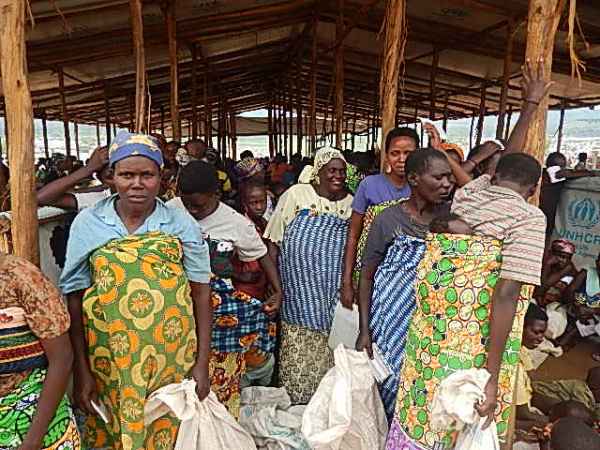
The European Union (EU) recently mobilised EUR 500.000 (RWF 588million) in humanitarian funding to support refugees living in Mahama camp in Rwanda. This additional funding will be channelled via the United Nations World Food Programme (WFP) in Rwanda that is already receiving EU funding. This brings the EU’s contribution to WFP Rwanda in 2021 to EUR1.250 million.
In 2021, the EU is providing in total EUR 12 million in funding for a regional humanitarian response in support of Burundian refugees and Burundian returnees to their country. Concerning the refugees, the funding is used for providing much-needed aid and protection assistance to refugees in the Great Lakes region, including the Democratic Republic of the Congo, Tanzania and Rwanda.
The EU funding is made available to WFP in order to provide food and nutritional assistance to refugees in Mahama camp in eastern Rwanda.
EU Head of Delegation to Rwanda, Ambassador Nicola Bellomo said “The EU is a leading supporter of refugees in Rwanda. On the one hand we support aid agencies in finding durable solutions for asylum seekers and refugees through the Emergency Transit Mechanism and to the government’s implementation of the Comprehensive Refugee Response Framework. On the other hand we help meeting the urgent food security needs of vulnerable refugees in Rwanda, exacerbated by the COVID-19 crisis.”
WFP Representative and Country Director Edith Heines said “WFP is very grateful to the EU for the generous contribution to support the food and nutrition needs of refugees in Mahama camp. This contribution along with support from other donors will allow WFP to stretch available resources for refugees and thus reduce the negative impact that reductions in rations have had on refugees’ food and nutrition security”.
Background
The COVID-19 pandemic has accelerated the socio-economic challenges of refugees in the Great Lakes region. Humanitarian action alone cannot solve the underlying and often structural causes of the humanitarian crises in the region.
The EU is therefore applying and promoting a humanitarian-development approach, where donors work together to further increase the coherence between humanitarian and development aid and stabilisation actors. (End)
